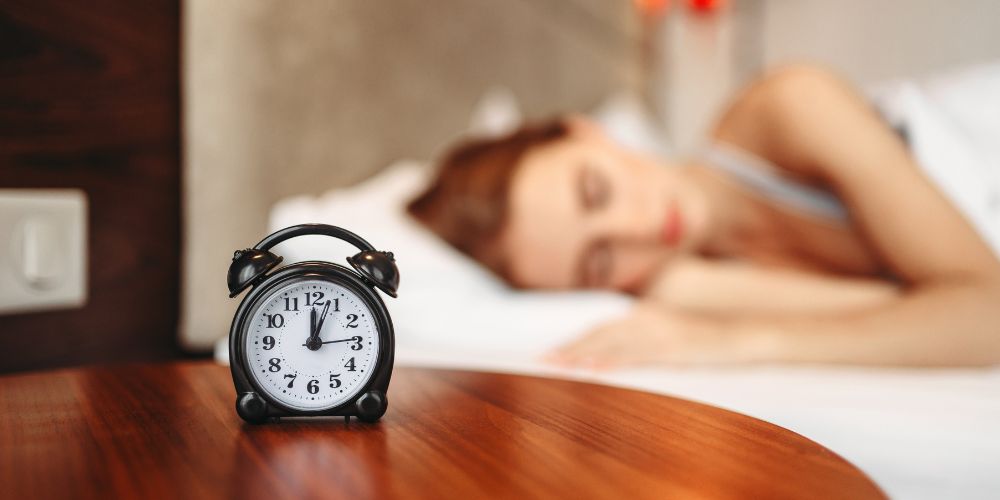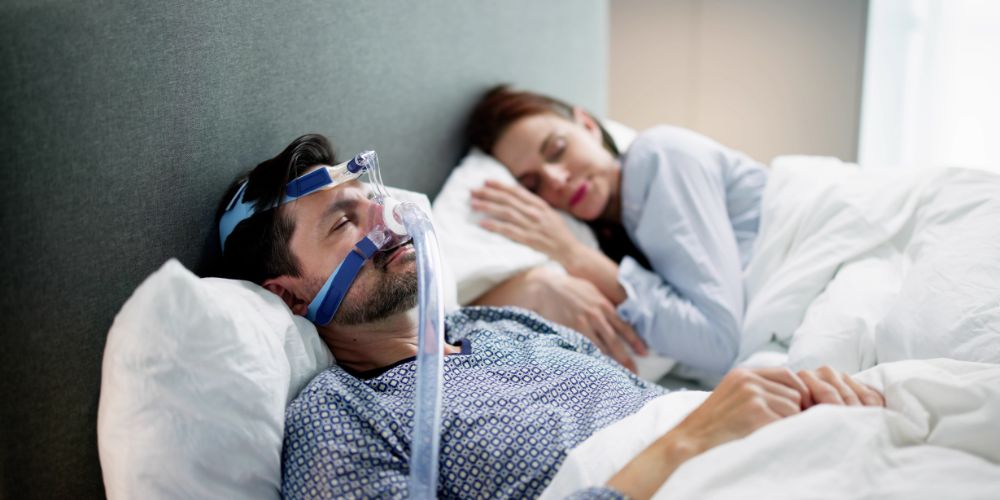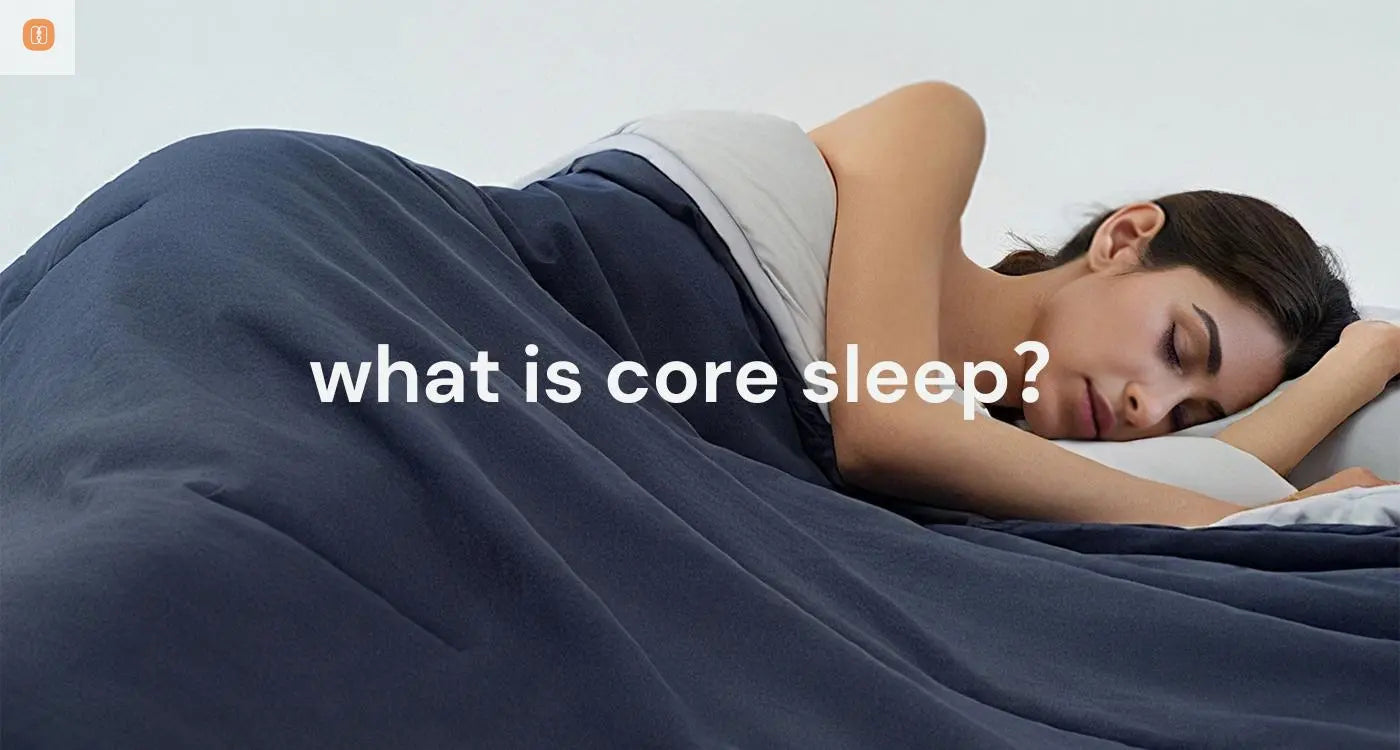
SLEEP DEBT: THE HIDDEN HEALTH RISK
Sometimes, we find that sleep can also become a form of debt. You might think that sleep deprivation only makes you feel a bit tired and irritable, but it goes much further than that. It can also lead to a host of health issues, such as heart disease, obesity, diabetes, and memory decline.
BUSY ADULT LIVES
Most adults lead extremely busy lives. From providing for their families to holding down a full-time job, and everything in between, there never seems to be enough time in the day.
When they get tired, instead of going to bed, they spend the time on things they didn't get done during the day. While this may seem effective, it is actually harmful and leads to sleep deprivation.

WHAT IS SLEEP DEBT?
The term "SLEEP DEBT" refers to a persistent lack of sleep. This typically occurs when you decide to stay up a few extra hours to finish a project or wake up early for the same reason.
Insomnia also contributes to sleep debt. Essentially, anything that interferes with your 6 to 10 hours of sleep per night adds to your sleep debt.
INDIVIDUAL SLEEP NEEDS
Everyone is different, so the amount of sleep they need varies. Factors that affect how much sleep a person needs include age, whether they are ill or affected by chronic pain, the amount of exercise and frequency of physical activity, and whether they are pregnant, among others.
Things that can disrupt sleep patterns include too much caffeine or alcohol, as well as blue light from electronic devices like phones and televisions.
DETERMINING YOUR SLEEP NEEDS
To determine how much sleep you need to feel rested, here is a process you can try:
Go to bed at your current bedtime and wake up at your usual time for work. Calculate your sleep duration.
For the next 2 to 3 nights, go to bed 15 minutes earlier than usual. Continue this until you are sleeping 7 hours each night.
Once you have consistently slept 7 hours for several nights, take note of how you feel. If you find yourself still feeling tired or struggling to wake up when your alarm goes off, then go to bed 15 minutes earlier the next night.
Continue this process until you are getting enough sleep each night. If you are well-rested, your body will tell you how it feels.

RECOGNIZING ADEQUATE REST
The problem with sleep debt is that people have become accustomed to sleep deprivation and no longer recognize its symptoms. Because our bodies and minds are amazing things, they can adapt to various conditions.
Although you may still be able to function at work while sleep-deprived, you are harming your health. Remember, lack of sleep can lead to heart disease, memory loss, diabetes, and weight gain.
Even if you have found ways to cope with sleep deprivation, your body will give you signals that it needs more rest. While determining how much rest you need, it is recommended that you keep a diary during the day to track indicators of sleep debt. They include the following:
When you wake up in the morning, note how long you slept and how you feel. Did your alarm wake you up, or did you wake up on your own? Do you feel rested? Do you feel good, or do you still feel groggy?
Throughout the day, keep track of how many cups of coffee or other forms of caffeine you consume to stay awake and functional. How many times do you yawn in a day? If you find it difficult to stay alert at your desk, this could be adding to your sleep debt.
You also need to track your body's cravings. If you find yourself often craving sugar and/or carbohydrates, this could be because you are not getting enough sleep. Your body is looking for extra energy so that it can function properly.
If you find yourself too tired to exercise, this could be another sign of sleep deprivation.
At the end of the day (or week), review your records. This will help you determine whether you are getting enough sleep.
REPAYING YOUR SLEEP DEBT
If you notice patterns in your diary, including those that lead to sleep deprivation, don't panic.
You may not be getting enough rest now, but you can repay your sleep debt and get back on track to feeling well-rested and improving your health.
Some people believe that sleep debt cannot be repaid, but research suggests that it can be, at least in part. It just takes time.
Also, don't believe that you can catch up on sleep over the weekend. Here are some things you can do to help you get a good night's rest:
-
DEVELOP A SLEEP SANCTUARY
It's important to have a separate workspace and a sleep sanctuary. This will get you up and moving during the day, helping you burn off excess energy while stretching and keeping your muscles from stiffening, making it easier to fall asleep at night.
BDI's CEO and Design Director, Bill Becker, says:
"The workplace can be one of the toughest environments to develop healthy habits, as most employees sit an average of nearly 6 hours a day and burn only 1 calorie per minute. More importantly, prolonged sitting can lead to other health issues such as elevated blood pressure, excess body fat, and high cholesterol. This is where the increasingly popular standing desks can play a role. Standing desks have many mental and physical benefits and can be a vital component of a positive healthy lifestyle."
To create your non-work sleep sanctuary, you need a comfortable bed that doesn't contribute to or develop pain in your body. You also need to keep TVs, computers, and other mobile devices out of the room. Blue light can disrupt circadian rhythms, preventing you from getting a good night's sleep.
Only sleep, engage in intimate activities, and other forms of relaxation, including reading or meditation, in your room. This can train your brain to recognize this space as a calm place. It's also important to only go to bed when you are tired.
If you wake up in the middle of the night and cannot fall back asleep within a few minutes, you need to leave the room and go somewhere else. Return to your sleep sanctuary when you are tired and ready to sleep.

2. EXERCISE REGULARLY
This may sound counterintuitive, but exercise can help you sleep better at night. It helps reduce stress and anxiety, both of which can affect the quality of your sleep. It also increases sleep depth and improves sleep quality.
Since lack of sleep can lead to weight gain and other health issues, exercise has the power to counteract these problems. The better you feel from exercising, the better you will sleep at night.
However, it's important that you do not exercise within 3 hours of bedtime. This can keep you awake and increase your sleep debt.
- NAP ONLY WHEN ABSOLUTELY NECESSARY
You might think that a good daytime nap can help you catch up on sleep. In some cases, it can. But remember, if you nap during the day and then find yourself going to bed late at night or not getting quality sleep, it does not help repay your sleep debt.
Sticking to a consistent bedtime throughout the week is the best way to ensure you get enough rest, and often you won't need daytime naps.
Although you might stay up late on weekends to catch up with friends, family, or watch TV shows you missed, it is harmful to you. Maintaining a routine is beneficial for your body and sleep quality.
-
BE MINDFUL OF WHAT YOU PUT INTO YOUR BODY
Too much caffeine during the day can affect the quality of your sleep at night. You might find yourself sluggish after lunch, but having another cup of coffee or energy drink can impact your sleep.
Limit your caffeine intake to the morning. To keep yourself energized in the afternoon, have some natural sugars, like fruits, or consume some protein. You might also consider a quick 15-minute walk to help perk you up.
In the evening, as you wind down after a long day, limit your alcohol intake. Drinking may seem like it helps you rest well, but it doesn't.
Alcohol only makes it difficult for your body to enter deep sleep, so you are not getting the quality of sleep you think you are. A few drinks are fine, but be mindful of how much you are consuming.
-
SKIP SLEEP AIDS
When it comes to falling asleep quickly, there are various over-the-counter and prescription medications that can help people fall asleep. It may be tempting to use them as a quick fix, but remember that they are usually only meant as short-term solutions.
While some people benefit from short-term use of sleep aids, the majority of people misuse sleep aids, which can be harmful to health and impair your ability to sleep. If you have questions about the effectiveness of sleep aids, consult a doctor.
IN CONCLUSION
Sleep is crucial. Humans cannot survive without it. We need it to function properly and stay healthy. Sleep is when the brain and body repair themselves, and without enough sleep, you may feel groggy, irritable, and unwell.
If you incorporate all of the above suggestions into your daily life but still find yourself not getting enough sleep, then you may have other issues that need to be addressed by a doctor. Talk to them and find the best course of action so that you can get a good night's rest.
Sleep deprivation is a significant concern for many people. Fortunately, there are many ways to repay this debt, and getting enough rest is beneficial in many ways. Goodnight!






